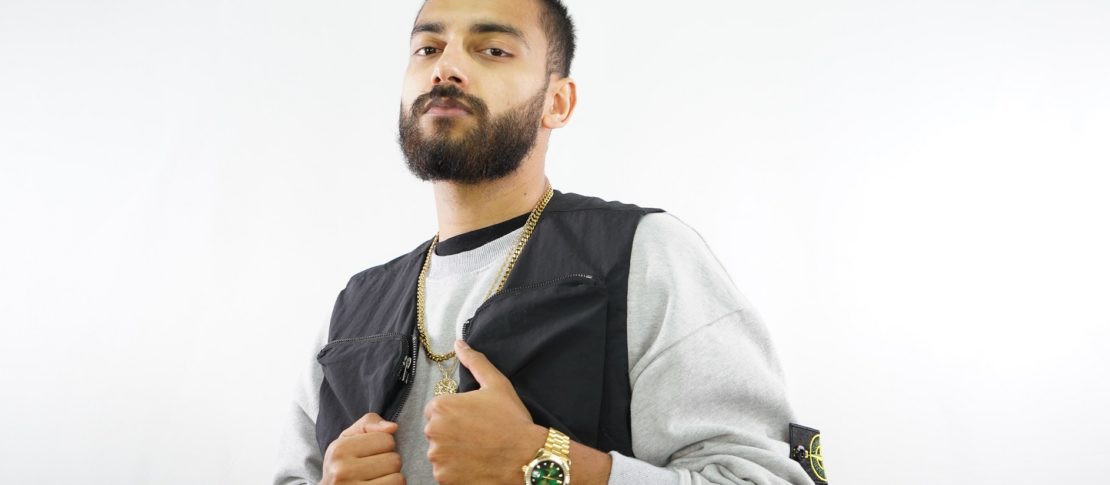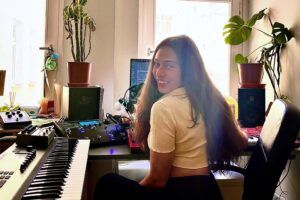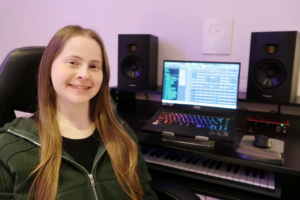
Interview with artist and producer Nish
Hi Nish, it’s an honor to have you on the blog! Thanks for taking the time to be here. The last couple of years have been crazy for you. After the success of your debut
album, you’ve been busy producing one banger after another. Does your success feel
surreal sometimes?
It’s my absolute pleasure to be a part of this blog! My debut album was a very special moment for me, as it was the beginning of my vision to bring Bengali music to a mass audience. It does feel surreal at times to see the positive reaction of people around the world, but it also inspires me to carry on doing what I do best.
You originally set out to study Computer Science, and getting into music was an accident. How did your music career begin?
I was always passionate about music, even when I was studying. Naturally, I was conscious about job prospects while studying – that’s why I picked such an academic subject. However, my love for music outweighed my better judgment, so I took a leap of faith to pursue it as a career. With my first releases, I was just testing the water. After I saw their success, it showed me that this was what I wanted to do and that there was scope to pursue music as a career.
Where does your passion for music come from? Did you always make music from an early age?
I have been singing since the age of five. Growing up, kids always wanted toys or video games to play with – I was always drawn to musical instruments. I was always fascinated by
unfamiliar sounds from all over the world. I realized that music was the one thing that took me into my own world, allowing me to really express myself.
Your mum was a tremendous influence on the music you were exposed to from an early age. That early exposure to Bengali music obviously had a great impact on your style of music. Which artists did you look up to growing up, and which artists inspire you now?
Growing up, my parents exposed me to Bengali literature, and I took great inspiration from the likes of Rabindranath Tagore, Kazi Nazrul Islam, and Shah Abdul Karim. I tried to implement their ideas through my music. Producers like Ryan Leslie, Timbaland, and Habib Wahid were very influential – I still look up to them today. Although I now work with him closely, I will always see Mumzy Stranger as a great source of inspiration.
For someone who hasn’t listened to Bengali music. How would you describe this style of music?
Bengali – also known as Bangla – is a very rich language. My style of music is a mix of many languages, however, I always implement Bangla in some shape or form. The mix of languages helps listeners who don’t understand Bangla to find a common ground, and the Bangla allows them to experience the sweetness of the language. The aim is that people can listen to the Bangla in my music and feel inspired to listen to more music in Bangla – whether it’s mine or not!
Is this your way of combining your Bengali heritage with your UK upbringing?
The mix of languages reflects the influences I had growing up. I was born and raised in London, UK, so I will always portray a UK influence in my music. However, my dual identity
as a British Bengali allows me to create a bridge between the two. I also love to mix in Punjabi, Hindi, and Arabic, as these are the languages I heard growing up in a diverse and
multicultural society.
Your career has grown alongside platforms like Instagram and TikTok. How has this impacted your career? When making music, do you think about how your tracks will work on social media?
I believe social media is a great tool to aid the exposure of artists today. As artists, we are extremely lucky that anyone in the world can listen to our music with just a touch of a button. It also allows artists to connect with listeners and fans directly, and I believe it shows people who we are as humans, not just artists.
You recently put a lot of effort into refurbishing your studio. How much time do you spend in the studio each week?
My studio is my sanctuary – I spend most of my time there. It is my main creative space and is the source of so much inspiration. I regularly invite creatives to come and share the space with me. Having my own space makes it so much easier to get an idea down. I would recommend any up-and-coming artists to invest in building their own setup, no matter how
big or small, as it aids so much productivity.
How has mixing and producing music changed throughout your career?
I believe adapting your sound is important, however, it’s equally important to have your own original sound. Each producer has his or her own way of mixing or producing. For me, I have
always stuck to a warm sound as my background has always been working with live instruments, but recently I have been experimenting with sampling. So much has changed over the years. Before, studios were scarcely available, but now producers are making hits from their bedrooms. This is amazing. Talented producers are getting exposure, even if they don’t have access to an expensive studio.
Do you have a go-to piece of gear or software that you always use in your music?
I have always sworn by Logic Pro, but after gaining experience in the music scene, I have familiarized myself with Cubase and FL Studio. Each DAW has its own pros and cons, but
for me, 90% of my work is still done with Logic Pro.
If you could travel a few years back in time and give yourself some advice, what would you say?
I wish I had a better understanding of the business aspect of music a few years back. It is crucial that any up-and-coming artist/producer/musician understands the way monetization
of music works so that they are not exploited or taken advantage of.
Thank you so much for this interview! What can we expect from you in the future?
I am aiming to release an album by the end of 2021, so I am very excited! I have been planning a lot of collaborations with brands and artists for this next project. This may be my best body of work to date, so I cannot wait to share it with the world.

